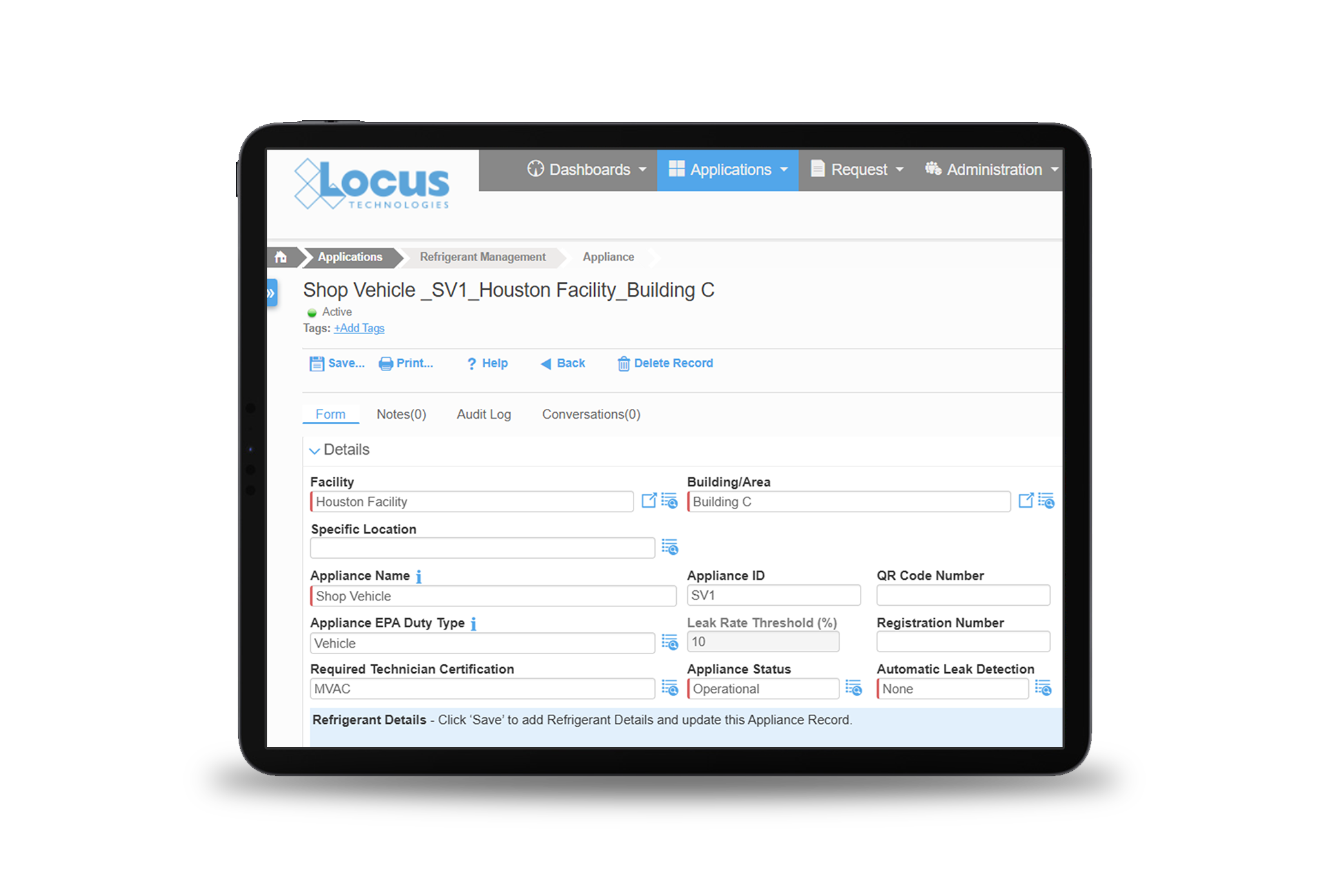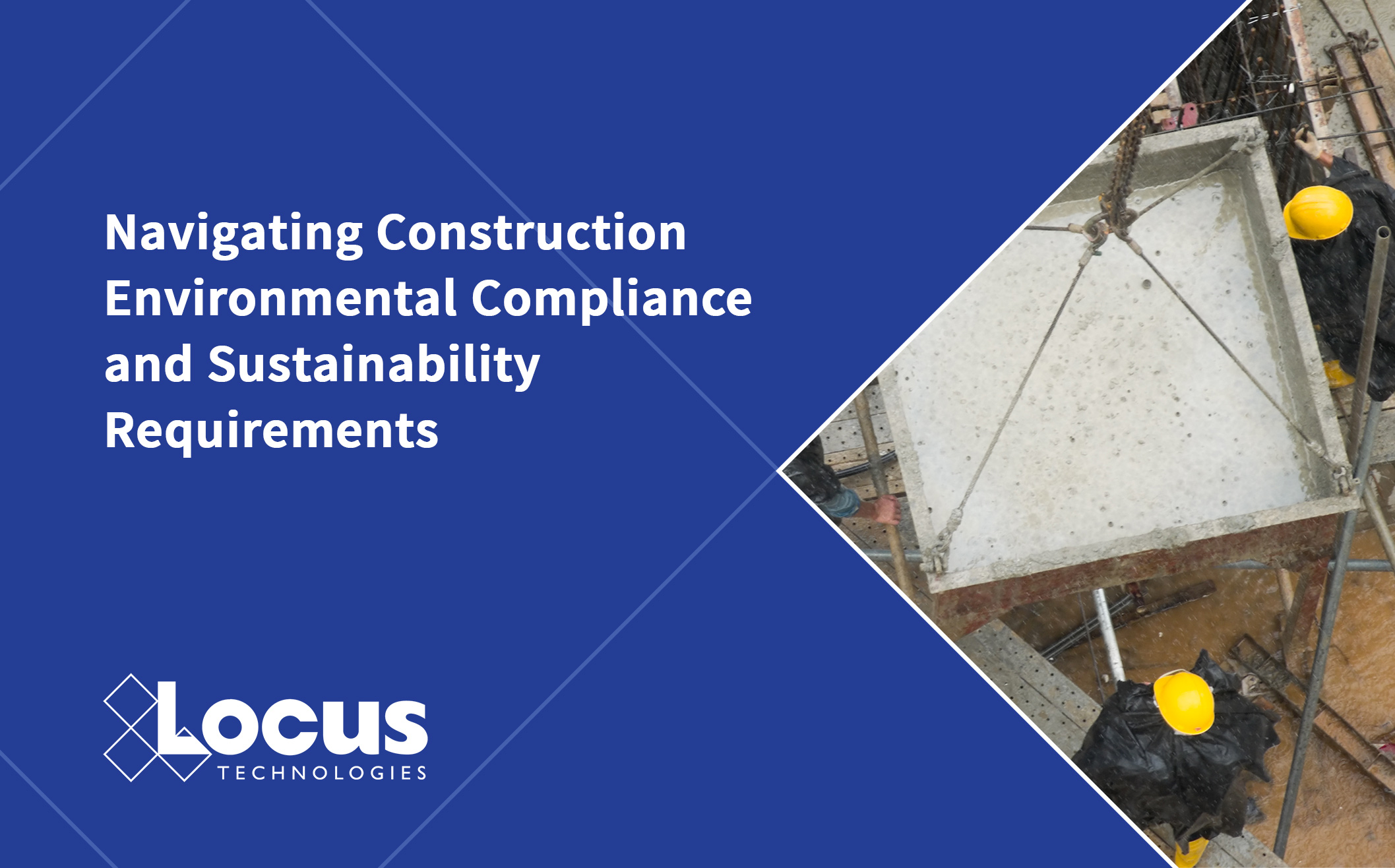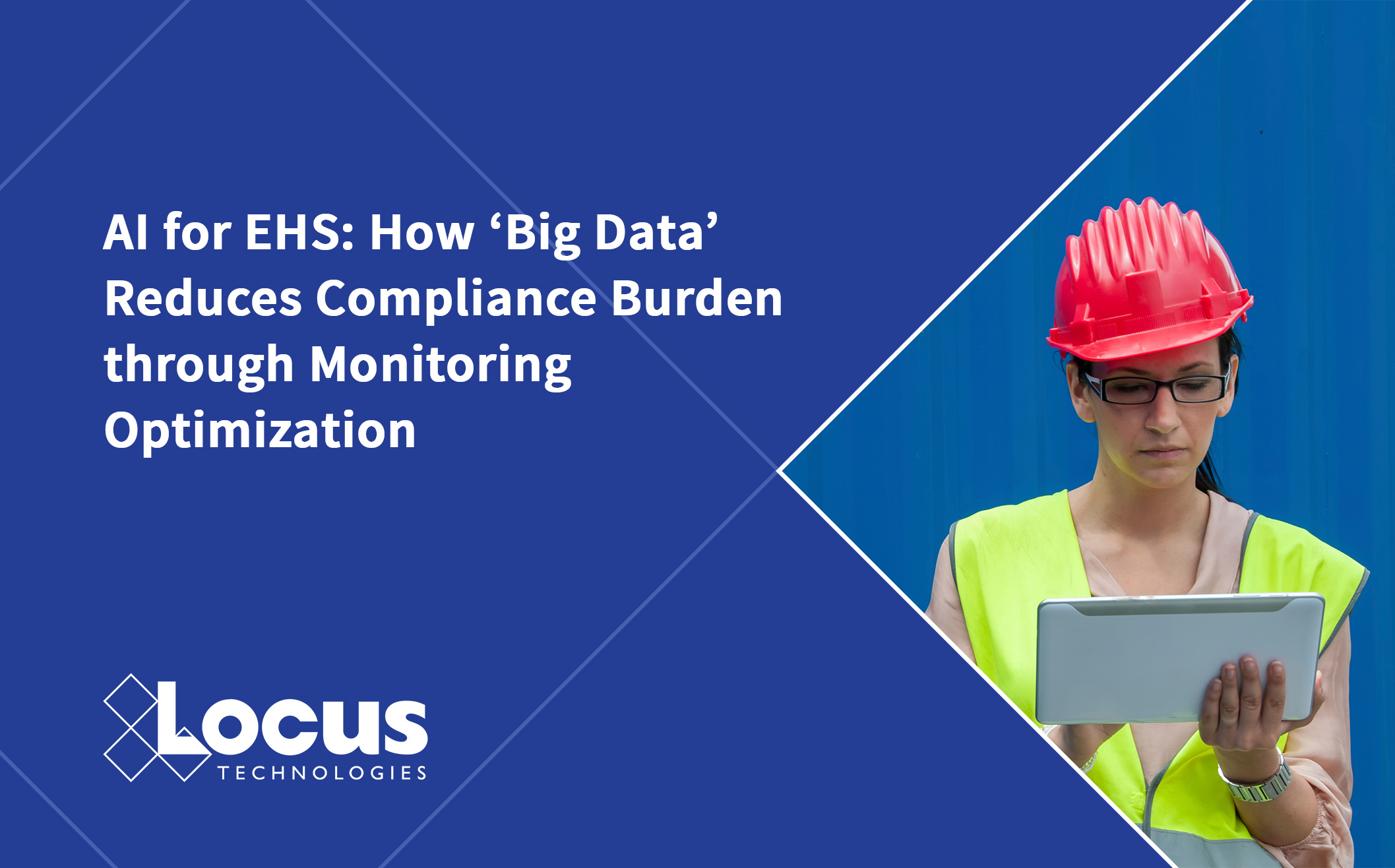Refrigerant Compliance Made Simple: Meeting EPA Section 609 with Locus Software
By Mark Harbin
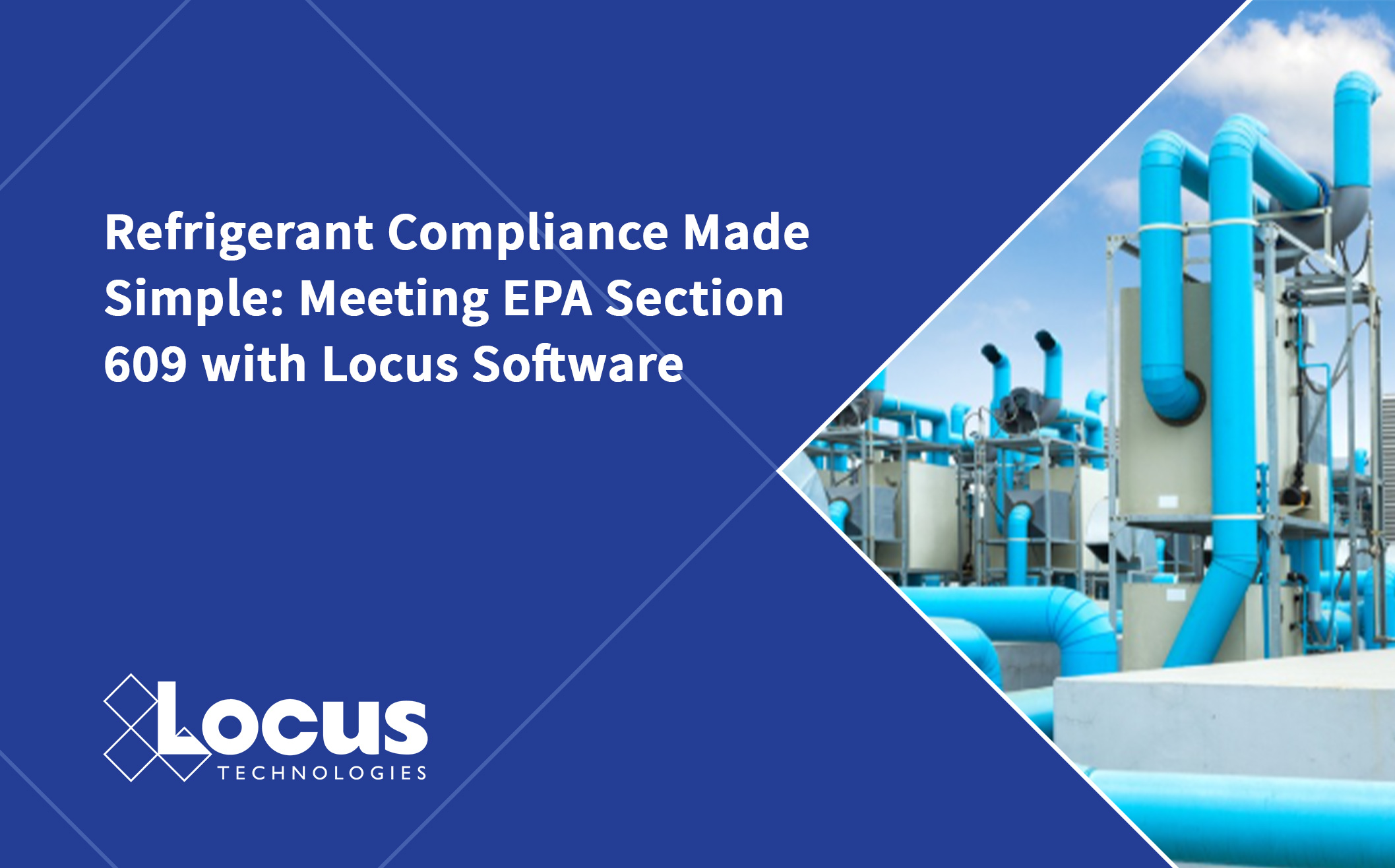
Reading Time: 1 minute 55 seconds
TL;DR
Motor vehicle air conditioning (MVAC) systems are essential for comfort and safety, but the refrigerants they use can contribute to ozone depletion and climate change if not managed correctly. To address this, the U.S. Environmental Protection Agency (EPA) established Section 609 of the Clean Air Act. This regulation requires strict certification, equipment, and record-keeping protocols for technicians and businesses that handle refrigerants.
Compliance is mandatory, but it can be complex and costly without the right tools. Locus Software offers a cloud-based platform that simplifies refrigerant compliance, streamlines record-keeping, and protects organizations from significant regulatory fines.
Challenges
Organizations servicing MVAC systems face several compliance hurdles:
- Ensuring all technicians are properly trained and Section 609 certified.
- Maintaining and verifying EPA-approved recovery and recycling equipment.
- Restricting refrigerant purchases and sales to certified personnel only.
- Keeping detailed service, recovery, and recycling records for audits.
- Avoiding severe penalties that can exceed $117,000 per day, per violation.
Without automation, managing these requirements manually increases the risk of error, non-compliance, and financial exposure.
Regulatory Landscape
Section 609 of the Clean Air Act focuses exclusively on MVAC systems in vehicles.
- Covered Refrigerants: CFC-12 (R-12), HFC-134a (R-134a), and newer alternatives such as the mildly flammable HFO-1234yf (R-1234yf)
- Applicability: Technicians, auto repair shops, dealerships, service facilities, refrigerant suppliers, and metal recyclers
- Key EPA Requirements:
- Certification for technicians
- Use of EPA-approved recovery and recycling equipment
- Restrictions on sales of refrigerants
- Accurate record-keeping and reporting.
The Locus Solution
Locus provides a unified, cloud-based compliance platform that addresses every requirement of Section 609:
- Certification Tracking: Monitor technician certifications, exam results, and continuing education dates in real time.
- Refrigerant Inventory Tracking: Real-time data that is updated with each service record, purchase, or disposal.
- Equipment Compliance: Document inspections, maintenance, and certifications of refrigerant recovery and recycling equipment.
- Automated Record-Keeping: Capture servicing, recovery, and recycling records directly in the platform.
- Reporting & Audits: Generate EPA-compliant reports instantly, with full transparency and data integrity.
Benefits of Locus Refrigerant Compliance Management
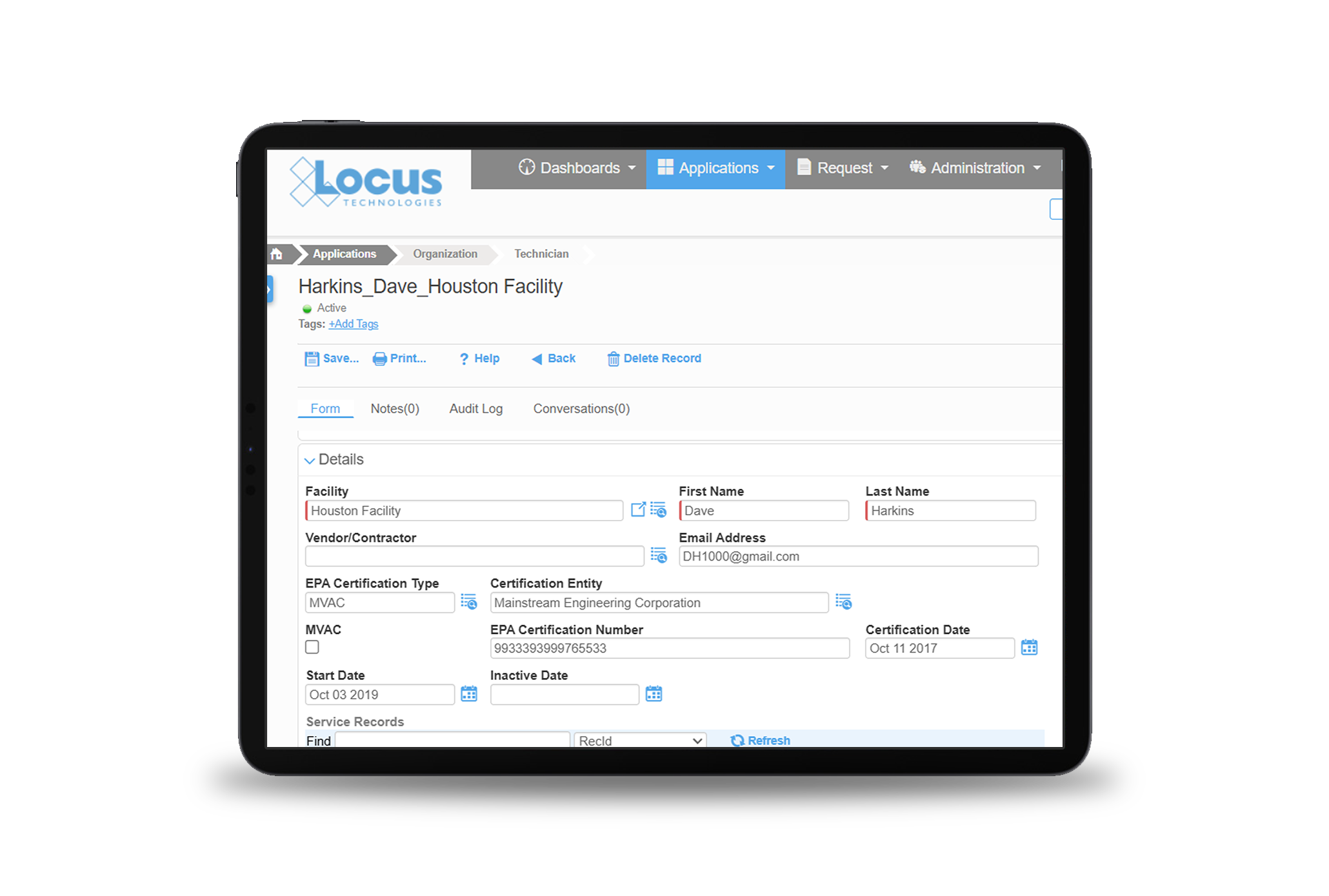
- Reduced Risk: Prevent costly violations and fines of up to $117,000 per day.
- Operational Efficiency: Eliminate manual logs and paperwork with centralized digital records.
- Audit Readiness: Maintain complete, accurate documentation for EPA inspections.
- Scalability: Manage compliance across multiple facilities and teams from one platform.
- Sustainability: Support environmental goals by ensuring proper recovery, recycling, and reduced refrigerant emissions.
- Interface and configuration capability: Ability to “speak” with other maintenance and operations systems, eliminating double-data-entry headaches.
The Takeaway
Section 609 compliance is not optional, and mistakes can be costly. With more than 28 years of experience delivering secure, cloud-based compliance solutions, Locus provides the tools organizations need to stay compliant, avoid penalties, and align with environmental best practices.
By using Locus software, businesses can simplify refrigerant management, protect their operations, and demonstrate leadership in environmental responsibility.
Mark Harbin
CEA, CRCM Senior Implementation Consultant
Mark Harbin is the Senior Implementation Consultant at Locus Technologies and the company’s in-house expert on refrigerant management and compliance. Mark contributes to the development of Locus Refrigerant Management software and advises Locus clients on their implementation of environmental and sustainability software. He also leads the Certified Refrigerant Compliance Manager (CRCM) course in partnership with the National Registry of Environmental Professionals (NREP), and he is a frequent author and speaker on ozone depleting substances and high global warming potential (GWP) refrigerants.
Mark spent 14 years in the commercial/industrial HVAC industry, and he has contributed to numerous energy retrofit and refrigerant conversion projects across the US. He later pivoted to a career in refrigerant management product development, consulting, training, and certification for organizations in all sectors, and joined Locus Technologies in early 2024. Mark earned a business degree from Arizona State University, and he is a licensed HVAC contractor in Arizona, an EPA Certified Technician – Universal, a Certified Environmental Auditor (CEA), a Certified Environmental and Safety Compliance Officer (CESCO), and a CRCM through the NREP.
Locus is the only self-funded water, air, soil, biological, energy, and waste EHS software company that is still owned and managed by its founder. The brightest minds in environmental science, embodied carbon, CO2 emissions, refrigerants, and PFAS hang their hats at Locus, and they’ve helped us to become a market leader in EHS software. Every client-facing employee at Locus has an advanced degree in science or professional EHS experience, and they incubate new ideas every day – such as how machine learning, AI, blockchain, and the Internet of Things will up the ante for EHS software, ESG, and sustainability.

